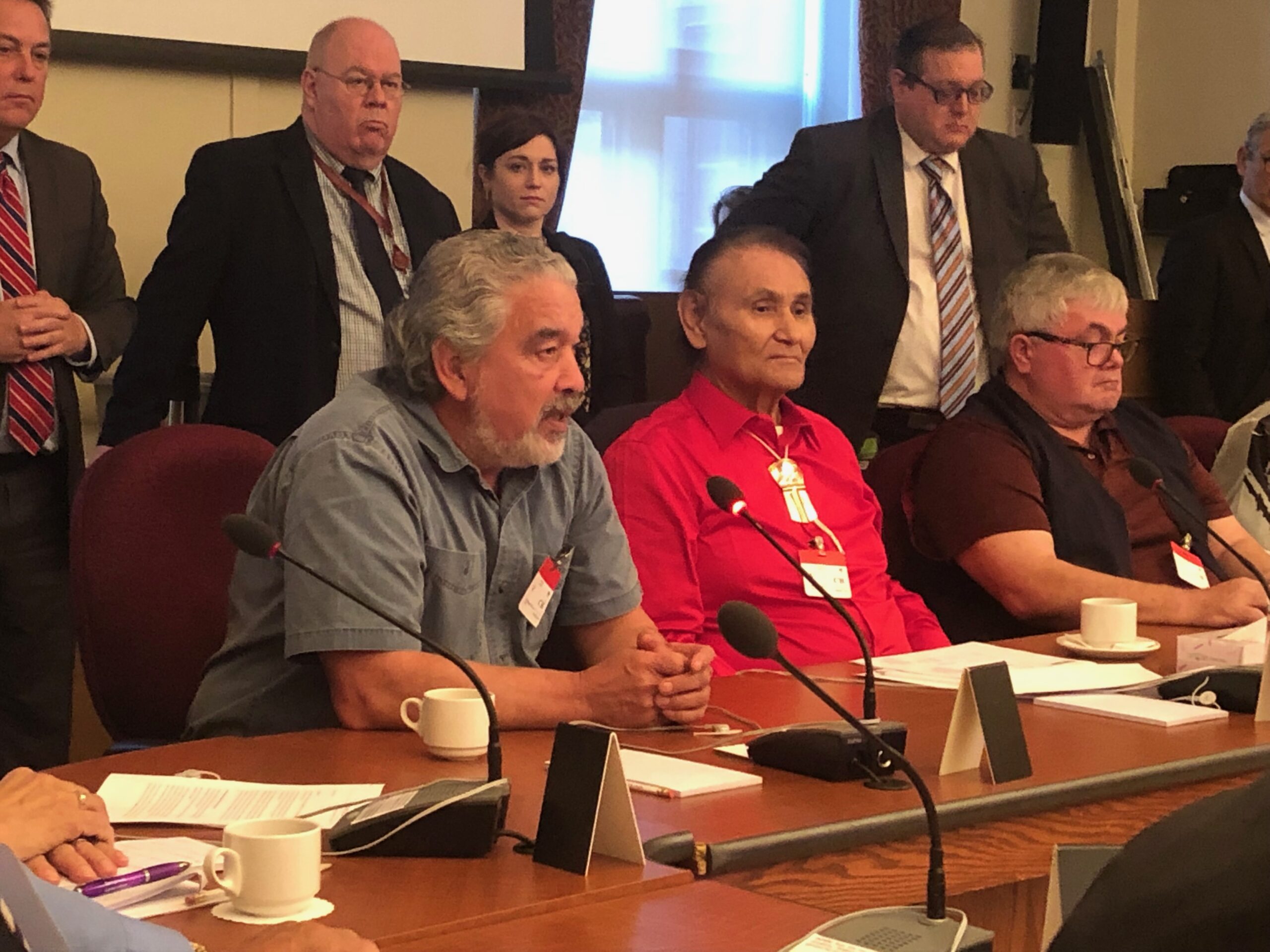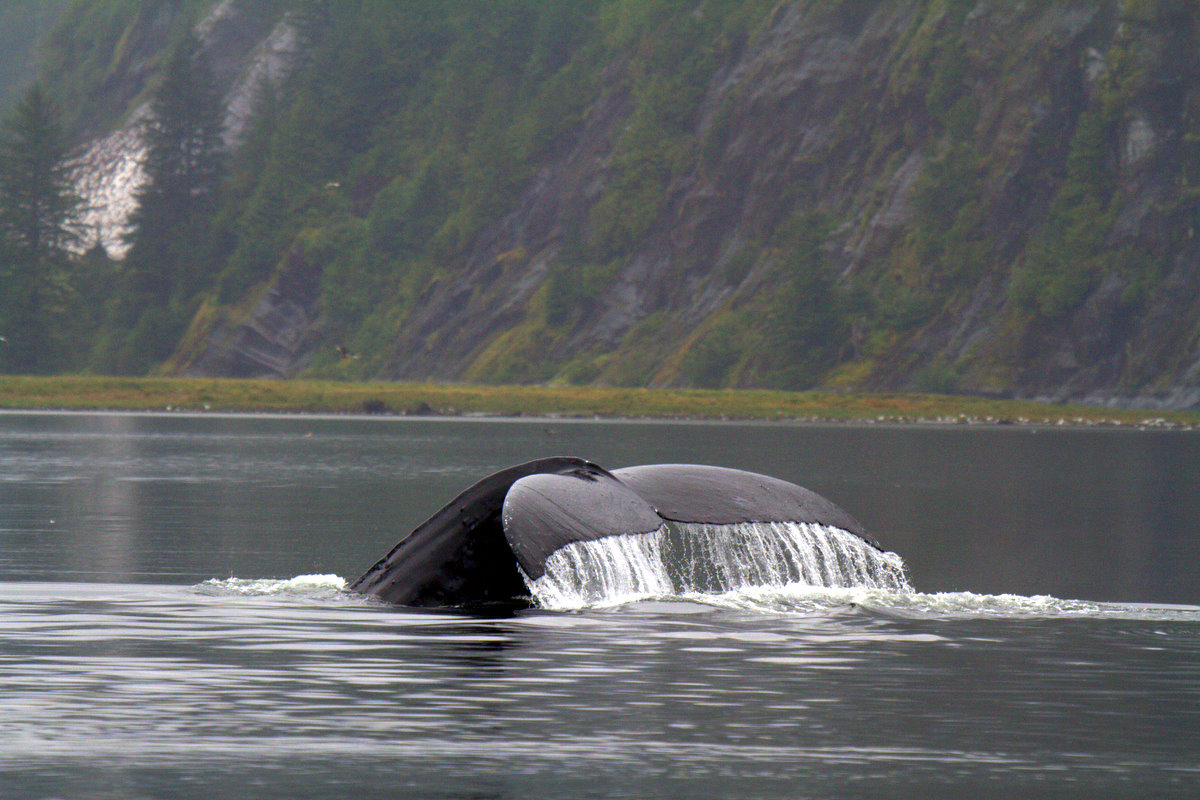FOR IMMEDIATE RELEASE
Prince Rupert (April 16, 2019) – The Coastal First Nations (CFN) say it’s time to end the rhetoric on the Oil Tanker Moratorium Act. “Groups who are fighting Bill C-48 must move on and spend the same amount of energy fighting for a sustainable coastal economy,” says CFN Special Advisor Guujaaw, who is also a Hereditary Chief and served 13 years as President of the Haida Nation.
That’s what Guujaaw and other Chiefs and political leaders from First Nations along the Pacific North Coast will be telling members of the Senate Transport Committee on Tuesday, April 16, at the Highliner Hotel in Prince Rupert. The Committee is hosting hearings in both Prince Rupert and Terrace this week to hear from key witnesses on the Oil Tanker Moratorium Act, Bill C-48, which would permanently ban large oil tankers in these coastal waters.
Guujaaw says there is a lot of noise coming from people like Alberta Premier Rachel Notley suggesting Bill C-48 should be tossed. “Premier Notley has wasted millions trying to ensure the oilsands industry keeps expanding no matter what the cost,” he says, referring to Alberta’s $23-million marketing campaign aiming to gain more support for pipelines, which would allow for greatly increased production of unsustainable and destructive oilsands.
Bill C-48 would prohibit oil tankers carrying more than 12,500 metric tons of crude or persistent oil along BC’s North Coast, strengthening an existing voluntary ban that’s been in place since 1985. It was also proposed in recognition of the fact that tankers moving oilsands product would be carrying diluted bitumen, a more toxic substance that sinks in water and is far more difficult to clean up than conventional oil or other fuels.
Coastal First Nations leaders are growing increasingly frustrated with critics of Bill C-48 and their fear-mongering about jobs and the economy—especially since the oil tanker ban was introduced partly to preserve the sustainable livelihoods of people in coastal communities, who depend on healthy fisheries to survive. The Federal Government introduced an informal moratorium on crude oil tankers in our waters in the early 1970s, and Bill C-48 will simply formalize that policy. Beyond protecting coastal fisheries and other sustainable economies, the ban will also protect this ecologically unique and fragile ecosystem, recognized as the largest intact coastal temperate rainforest in the world.
Chief Marilyn Slett, president of the Coastal First Nations, said those that claim to be speaking straight on the issue are willing to put the coast at risk for personal profit. “Our communities have spent more than four decades fighting to keep our waters safe from oil spills,” she says. “An oil spill would have catastrophic impacts on our communities, culture and economy.”
The Coastal First Nations strongly support Bill C-48 because our leaders know from experience that the North Coast’s extensive navigational hazards mean the potential for a catastrophic oil spill is simply too great. The region’s unique hazards include highly unpredictable weather, deep waters throughout narrow, rocky channels, and vast stretches of remote coastline that are hundreds of kilometres away from any spill recovery services.
Slett said our leaders also support Bill C-48 because we are actively working to rebuild a sustainable economy for our coastal communities; one that will keep our healthy lands and waters intact for all future generations. “Increased oilsands production and transporting vast amounts of raw, toxic diluted bitumen along our fragile coastline is simply not a part of our sustainable vision, nor should it be part of Canada’s.”
-30-
For more information, please contact:
Guujaaw
Special Advisor, Coastal First Nations
250-637-1190
Chief Marilyn Slett
President, Coastal First Nations
250-957-7721


